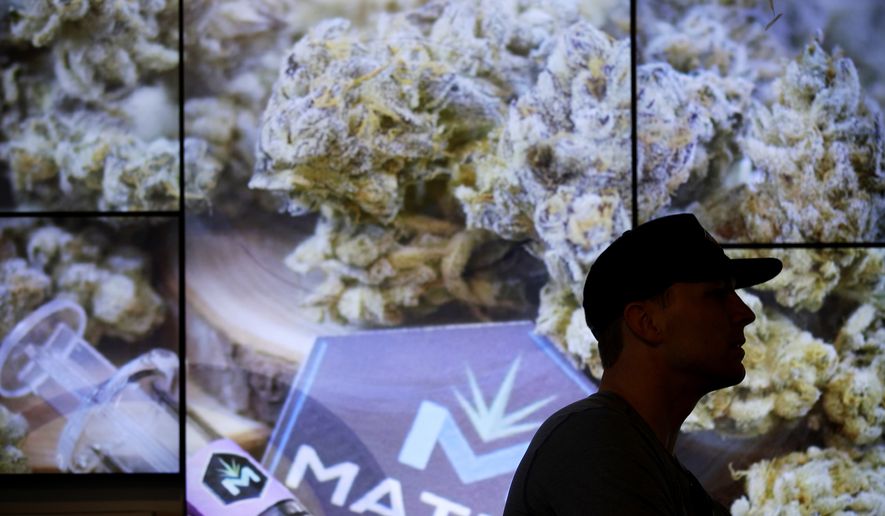The D.C. Council has given minorities a hand up in the city’s new marijuana business as D.C. Department of Health statistics show that many local African-Americans are struggling with marijuana abuse.
The council has passed emergency legislation mandating that medical marijuana dispensary permits be given preferentially to minority-owned companies and small businesses.
The emergency law went into effect late last month. Its sponsor, council member Robert White, said it is needed to help minorities and small business entrepreneurs overcome an economic disadvantage.
“I knew that this would be a high-growth industry in the District, and I’ve had concerns from the beginning that there would not be enough opportunities for African-Americans and local businesses,” Mr. White, at-large Democrat, told The Washington Times. “I wanted to be sure that we carved out space as we pursue this new industry.”
According to the D.C. Health Department’s most recent report on marijuana abuse in the city, black residents — especially men — are trying to deal with effects of pot addiction and dependency.
From 2011 to the third quarter of fiscal 2015, a total of 4,701 D.C. residents were being treated for marijuana abuse. Of those, 4,395 were black, 117 were white, and 189 were of another ethnicity.
In addition, of those 4,701 pot patients being treated in the District, 1,240 were women, 3,455 were men, and six were unknown, according to the report “Marijuana in the District of Columbia,” dated June 2016.
In introducing the emergency legislation, Mr. White cited the disproportionate number of black people incarcerated for marijuana compared to whites as another reason for enacting his bill.
“We have locked up so many black people for marijuana, and I see it as incredibly hypocritical for those folks to return from prison on marijuana charges just to come back to a place that has now legalized and industrialized it, and they can’t play any role,” he said.
D.C. voters legalized medical marijuana in 1998, but the first dispensaries did not open for business until 2013 due to congressional interference.
In 2014 city voters legalized recreational marijuana. That law allows residents 21 and older to possess less than 2 ounces of pot as well and grow as many as six marijuana plants. Residents are permitted to consume marijuana in private residences but not in public and to give small amounts of weed to another person of age as long as no money is exchanged.
Efforts by the D.C. government to regulate and tax recreational pot have been blocked by the Republican-led Congress.
The federal government still outlaws the production, distribution, possession and use of marijuana, so it is illegal to have or use pot in any federally owned areas.
The administration of D.C. Mayor Muriel Bowser said it has begun implementing the new emergency law.
“I think that what we’ll see from this legislation are real opportunities for local and minority-owned businesses to play a foundational role in this emerging economy,” Mr. White said.
Emergency legislation in the District can remain in effect for only 90 days, which means the new pot law offering a preference for minority-owned and small businesses will end around the beginning of September.
But Mtokufa Ngwenya, chief of staff for Mr. White, told The Times that the council also has passed temporary registration that lasts for 225 days, and a permanent bill has been introduced.
“The contracts will be awarded relatively quickly,” Mr. White said. “So this law should really be able to be fully implemented before it expires.”




Please read our comment policy before commenting.